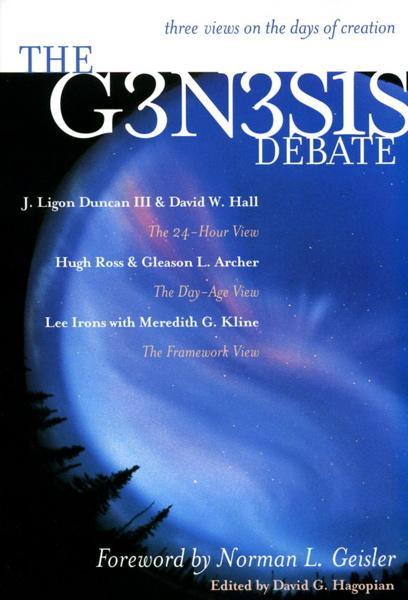The Genesis Debate : Three Views on the Days of Creation
Hagopian, David (editor)
Are the Genesis Creation Days 24 hours Long? Ages of Time? Or a Literary Framework? For some time, the Christian community has needed to have committed evangelicals charitably discuss their competing views about the creation days in a single volume. That need has given birth to The Genesis Debate: Three Views on the Days of Creation.
As the title indicates, this volume gives proponents of three evangelical schools of thought the opportunity to explain their respective views and to interact directly and meaningfully with one another. The three views presented are known as the 24-hour, day-age, and framework views.
The 24-hour view holds that God created the universe and all life in six sequential natural days marked by evenings and mornings. According to this view, God created the universe and all life in approximately 144 hours and in the sequence presented in Genesis 1. Defending this view are J. Ligon Duncan III and David W. Hall.
The day-age view, defended by Hugh Ross and Gleason L. Archer, agrees with the 24-hour view that the events recorded in Genesis 1 are sequential. The day-age view, however, parts company with the 24-hour view regarding the length of the creation days. According to the day-age view, God did not create the universe and all life in six 24-hour days, but in six sequential ages of unspecified, though finite, duration.
The framework view holds that the days of Genesis form a figurative framework in which the divine works of creation are narrated in a topical, rather than sequential, order. This view holds that the picture of God completing His work of creation in six days and resting on the seventh was not intended to reveal the sequence or duration of creation, but to proclaim an eschatological theology of creation. Lee Irons defends this view in consultation with Meredith G. Kline.
Part One focuses on the 24-hour view, presenting the 24-hour opening essay, followed by the day-age and framework responses, and closing with the 24-hour reply. Part Two repeats this pattern with the day-age view, and Part Three presents the framework view.
-
Cover Type
-
ISBN
-
Page Count
-
Publisher
-
Publication Date
-
Books of the Bible









